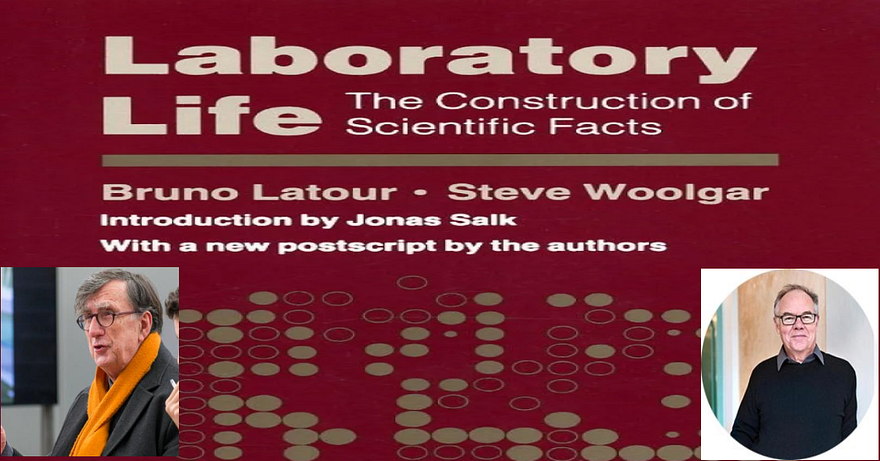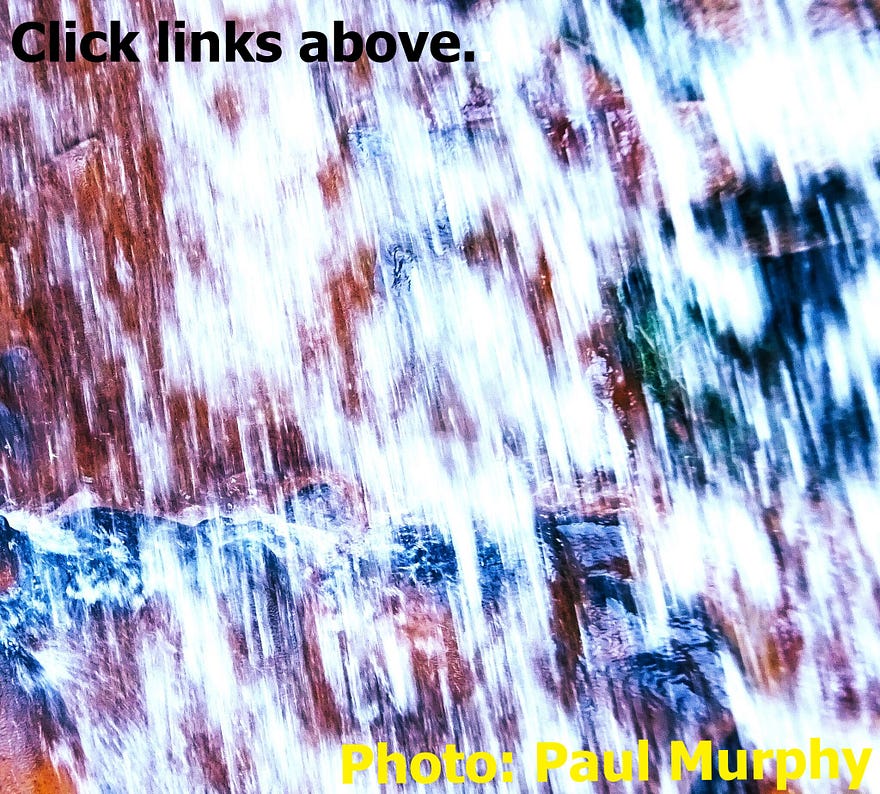The sociologists Bruno Latour and Steve Woolgar claim that what we take to be reality “can’t be used to explain why a statement becomes a fact”. Basically, then, they believe that facts are made… But don’t we firstly need to establish what a fact is?

According to Ian Hacking (in his book The Social Construction of What?), the French philosopher and sociologist Bruno Latour (1947–2022) and the British sociologist Steve Woolgar (1950-) claim that facts are made.
This must mean that Latour and Woolgar don’t believe (Latour died last month) that facts are found and then simply (as it were) registered.
So doesn’t Latour and Woolgar’s position seem… well, terrible?
Indeed, doesn’t it sound “postmodern” or even “relativist” in nature?
Yet analytic philosophers — and others — have never been able to agree on what a fact actually is. What’s more, they’ve debated what a fact is in minute and (perhaps) boring detail.
One common expression of the nature of a fact is extremely unhelpful and almost pointless. It’s this:
A fact is something that is the case.
This is a (kind of) variation on Aristotle, who wrote:
“To say of what is that it is, or of what is not that it is not, is true.”
There are many more definitions of the word “fact”.
There are also many philosophical analyses of what a fact is.
Added to all that is the fact that the word “fact” is used in very different ways in different disciplines.
For example, in mathematics, a fact is sometimes deemed to be (if, to me, oddly) a statement (called a theorem) that can be proven by logical argument from given axioms and definitions.
So a mathematical fact is about as far away from the everyday use of the word “fact” (if there even is an everyday usage) as can be.
All this may mean, then, that the claims above (i.e., those from Latour and Woolgar) may not be as objectionable as they at first seem. (Of course not everyone will see their claims that way.) Indeed, Latour and Woolgar’s position isn’t that far removed from what (at least) some analytic philosophers (as just mentioned) believe.
In any case, what does it mean to state that facts are found and then registered?
How can a fact (literally) be found?
Perhaps, then, there aren’t only two options here: (1) Facts being made. (2) Facts being found and then registered.
As for Latour and Woolgar, they got their own philosophical point across by doing a bit of Heideggerian etymology. In their book Laboratory Life: The Construction of Scientific Facts), they wrote that
“[t]he word ‘fact’ comes from the Latin factum, a noun derived from the past participle of facere, to do, or to make”.
Readers shouldn’t be too shocked by that little bit of etymology since, according to Hacking, “made things exist”. Indeed, Latour and Woolgar themselves say that they do
“not wish to say that facts do not exist nor that there is no such thing as reality”.
Well, obviously made things exist. Who’d dispute that?
So were Latour and Woolgar simply attempting to soften the blow with this (possibly weak) admission of theirs?
Well, that depends.
Latour and Woolgar’s basic point seems to be (or it could be) that facts aren’t like tables or chairs, or even like electrons or gravity. In other words, facts can’t really be things which are simply found and then registered. (Not that electrons and gravity are simply found and then registered.)
So take this “traditional” account of what a fact is:
“A fact is the worldly correlate of a true proposition, a state of affairs whose obtaining makes that proposition true.”
Even on this basic account, facts can’t be deemed to be like the tables or chairs which we simply bump into and then register. Here we have all sorts of other things too: words, whole sentences, (abstract) propositions, truth values, human utterances, etc. All these (non-factual) things may well be about something else (facts?). However, they’re still part of the picture. And if they’re part of the picture, then what they’re about on their own can’t be facts.
(The philosopher Peter Strawson once got his own sceptical point across when he said that facts are “sentence-shaped objects”.)
Then again, and here we go…
There are accounts of what a fact is that see such a thing as being purely (as Latour and Woolgar put it) “out there”. For example, the French philosopher Pascal Engel (among many others) has it that what makes a sentence true is that it corresponds to a fact (see here).
Scientific Facts
Latour and Woolgar’s take is a slightly different position to that which has just been articulated above. They state that
“‘out-there-ness’ is the consequence of scientific work rather than its cause”.
Perhaps, then, Latour and Woolgar touch on my previous remarks (i.e., about statements, sentences, utterances, etc.) when they conclude that
“‘reality’ cannot be used to explain why a statement becomes a fact”.
In actual fact, however, Latour and Woolgar’s position is fairly standard (if only in part) in science.
Scientists tend to see facts as being established as a result of repeatable observations, as well as repeatable measurements within repeatable experiments. In strong contradiction to Latour and Woolgar, however, scientists often see scientific facts as being independent of the observer — and, indeed, independent of all observers.
Latour and Woolgar also referred to what they called “scientific work”.
This seems to chime in with what Copenhagenist physicists argued in the 1920s and beyond. Indeed, John Archibald Wheeler later argued that the “answers which nature elicits” are due to the questions physicists ask. And the questions physicists ask will largely occur in tandem with the experiments they perform (along with the apparatuses they use, etc.).
Werner Heisenberg and Niels Bohr (among many others), for example, stressed that the experiment itself determines whether a wave or a particle is measured (or even discovered).
Yet, arguably, experiments determine far more than that binary wave-particle possibility.
In the Copenhagen interpretation (at least according to most interpretations of the Copenhagen interpretation), it’s the case that there is no wave or particle at all unless a scientist carries out an experiment (or simply observes it) in order to (as it were) quantify it.
On a more basic level, there are innumerable scientific facts which would never have been bumped into and then registered if it weren’t for the theories, experiments, etc. which led to them. Indeed, without such theories, experiments, etc. it can easily be argued that there would be no scientific facts at all.
All — or most — of the above clearly means that scientific facts can’t be (as it were) everyday facts. That said, perhaps what these scientific accounts of facts do share with the everyday notion of a fact is that a fact must be what’s often called “objective” and therefore verifiable in terms of observation. Yet even here scientific terminology has slipped in again.
None of this is to say there’s only a single scientific account of facts. Indeed, it’s the case that most scientists don’t spend much — or even any — time thinking about the nature of facts.
Now if we move away from science, the same line of reasoning can still be applied to everyday facts. They too required all sorts of things (i.e., other than themselves) to lead to them. Moreover, there are no facts without all these other sorts of thing which (metaphorically at least) lead to them.
My flickr account:









No comments:
Post a Comment